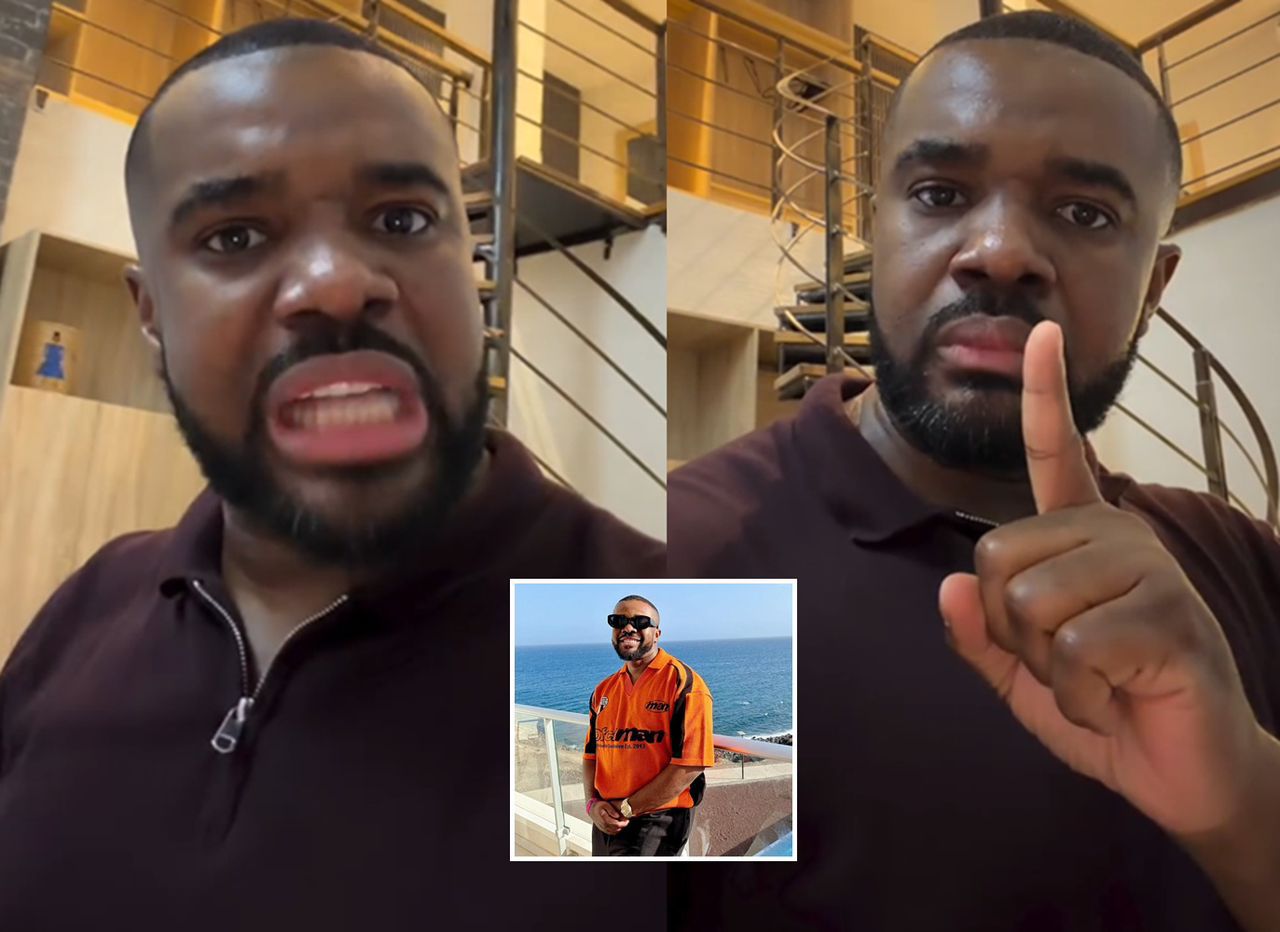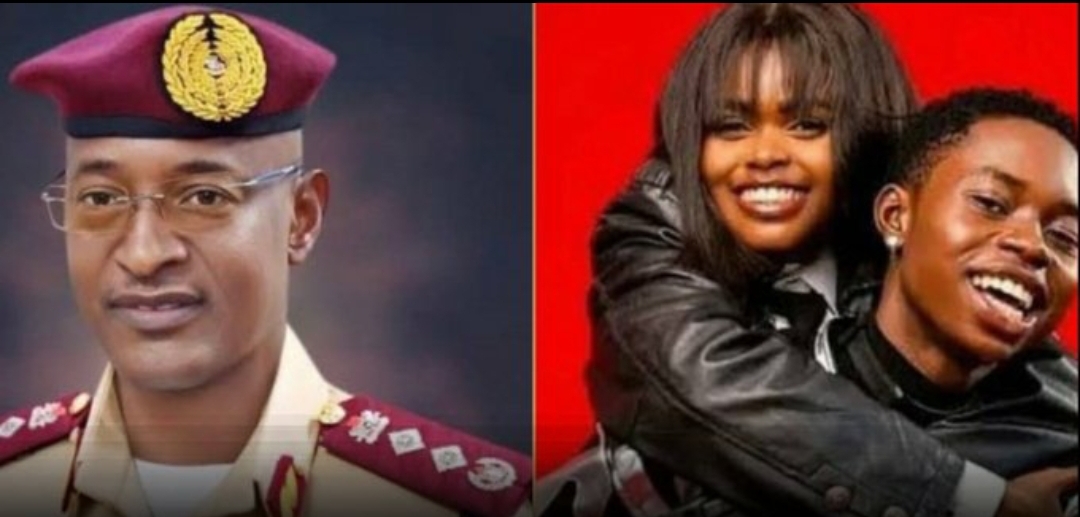
“If They Can Show Their Colleagues Being Executed on National TV, Others Will Stop” — Williams Uchemba Speaks Out Against Nigeria’s Alarming Kidnapping Epidemic

Nigerian actor and humanitarian, Williams Uchemba, has sparked nationwide discussion following his bold statement on social media, where he expressed deep frustration over the rising wave of kidnappings across the country. In his emotionally charged post, the actor condemned the worsening state of insecurity in Nigeria, stressing that the rate at which people are being abducted daily has reached an unbearable level. According to him, drastic measures must now be taken to deter those involved, even if it means setting a shocking example.
In his words, “If they can show their colleagues being executed on national TV, others will stop.” The statement, though controversial, has ignited debates among Nigerians who share his frustration but differ on whether such an extreme measure is ethical or acceptable. For Williams Uchemba, his outburst reflects the helplessness of many citizens who have watched their loved ones fall victim to the incessant kidnappings that now plague nearly every part of the country.
Over the past few months, kidnapping has evolved from a regional menace to a nationwide nightmare. From the northern highways to the rural communities of the South, Nigerians live in fear of being taken by armed gangs who demand huge sums as ransom. Reports of students, commuters, and even clergy being abducted have become so frequent that many citizens have started to see it as part of daily life — a dangerous normalization of what should be treated as a national emergency. Williams Uchemba’s comments, though intense, mirror the silent cry of millions of Nigerians who feel abandoned by a system that has failed to protect them.
The actor, who has built a reputation for his philanthropy and outspokenness on social issues, made the statement out of sheer frustration with the government’s perceived inaction. According to him, the time for empty statements and committees is over — what Nigeria needs now is an example that will send fear down the spines of kidnappers and their collaborators. “When criminals see that their partners in crime face the full wrath of the law without compromise, they will think twice before committing the same act,” he emphasized.
For many Nigerians, Uchemba’s words strike a painful chord because they reflect the growing sense of hopelessness that surrounds the issue of insecurity. Each week, there are fresh reports of kidnappings, often followed by heartbreaking videos of victims pleading for help. Families are forced to sell property or borrow money just to pay ransoms, while many victims who cannot meet the demands are either killed or never seen again. The horror has become so widespread that even major roads once considered safe have turned into hunting grounds for criminal gangs.
Williams Uchemba’s statement also exposes the widening gap between citizens’ expectations and government performance in terms of security. Nigerians have repeatedly called for more decisive actions from law enforcement agencies, but the results have been underwhelming. Kidnappers operate with alarming confidence, often escaping with victims in broad daylight. Many of these crimes go uninvestigated, leaving families to negotiate directly with the abductors — a process that further empowers the criminals.
In his post, Uchemba argued that until the consequences become severe and public, there will be no deterrence. He believes that the leniency with which some criminals are treated emboldens others to follow in their footsteps. “When people see that nothing happens after someone kidnaps or kills, they believe it’s normal. But when justice is swift and public, it will change everything,” he said. His suggestion of executing convicted kidnappers on national television, though controversial, echoes the tough-on-crime stance some countries have adopted in the past to curb similar problems.
The reactions to Uchemba’s post have been mixed. While a large number of Nigerians applauded him for saying what many are too afraid to say, others accused him of endorsing jungle justice. Some human rights advocates warned that such an approach could lead to abuse of power and innocent people being punished. Still, others pointed out that the actor’s emotional tone is understandable given the climate of fear that grips the nation. “We can’t keep losing people every day,” one commenter wrote. “If the government won’t act decisively, what else are we supposed to do?”
Insecurity has undoubtedly become Nigeria’s greatest challenge in recent years. From banditry and terrorism to ritual killings and political violence, the nation is battling crises on multiple fronts. The kidnapping epidemic, in particular, has grown to a frightening scale. Data from local security monitors show that thousands of Nigerians have been kidnapped in the past two years, with ransom payments running into billions of naira. Entire communities have been displaced, and schools have been shut down in many rural areas due to constant threats.
Williams Uchemba’s statement is not just an outburst; it is a reflection of a country pushed to the edge. The actor, known for using his platform to advocate for youth development and social justice, appears to have reached his breaking point. His words underscore the frustration of citizens who no longer feel safe even in their own homes. For many, it’s not about whether his suggestion is morally right but about the urgency of finding a lasting solution.
The Nigerian government, on its part, continues to promise reforms and improved security measures. Various operations and task forces have been launched to combat banditry and kidnapping, but results remain limited. Citizens are demanding not just arrests, but justice that can be seen and felt. Transparency, speed, and accountability in handling criminal cases are now more crucial than ever.
As Williams Uchemba’s post continues to circulate, it has succeeded in doing one thing — forcing the nation to confront a painful truth. The fear that has gripped Nigeria is not just about kidnappers with guns, but about a system that has allowed impunity to thrive. His words, though severe, have reopened the conversation about what must be done to restore order and dignity to a nation that has endured too much loss.
In a country where law and order are often seen as negotiable, Uchemba’s call for public justice serves as both a warning and a wake-up call. While his suggestion may be extreme for some, the emotion behind it is rooted in genuine despair. Nigerians are tired — tired of crying over new victims every week, tired of empty assurances, and tired of feeling helpless. The actor’s voice joins that of millions yearning for real change, not just promises.
At its core, Williams Uchemba’s message is not merely about punishment; it’s about restoration — the need to make Nigeria a place where people can travel, work, and live without fear. Whether or not his call for televised executions becomes a reality, the urgency behind it cannot be ignored. The time has come for the nation to prove that life in Nigeria still has value, and that those who destroy it will face consequences swift enough to deter the next criminal.
Until then, Uchemba’s words will continue to echo across social media and the streets alike — a cry born out of pain, frustration, and the desperate hope that someone, somewhere in power will finally listen.


